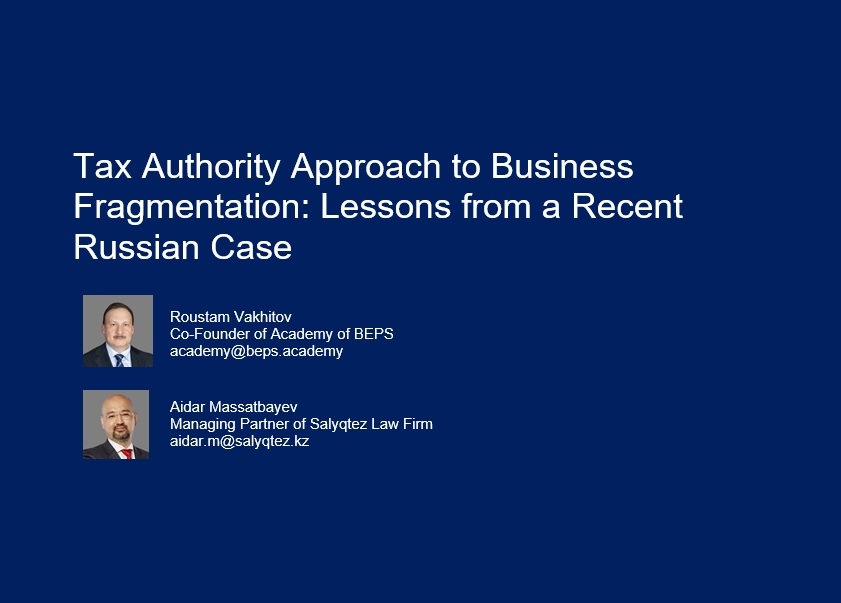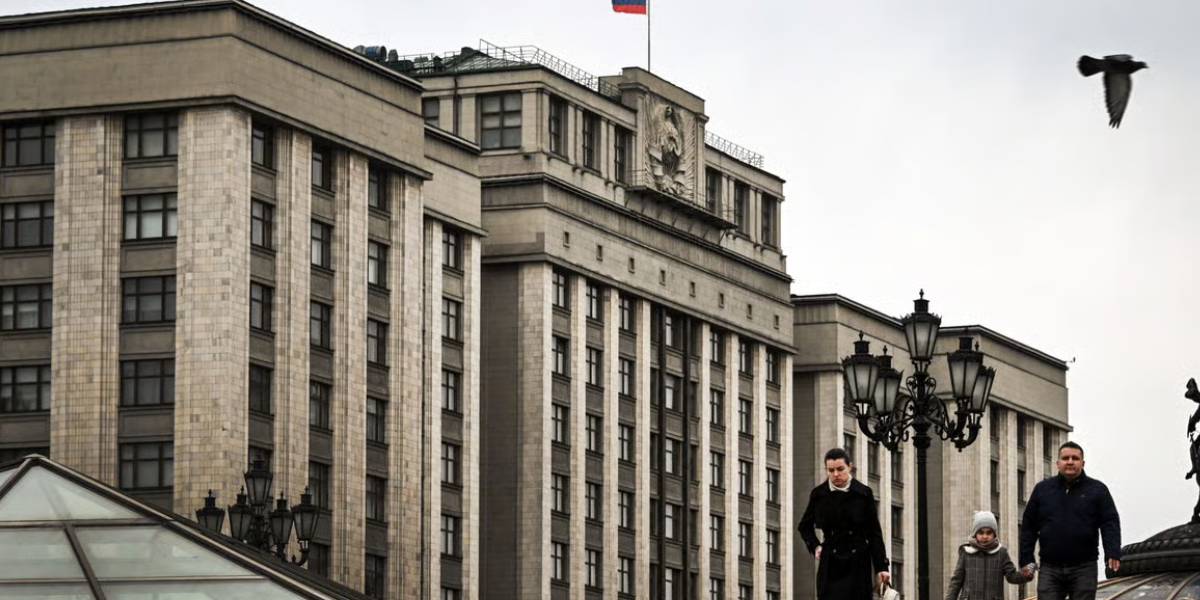Traditionally, countries like Russia, Kazakhstan, and others in their vicinity have created highly advantageous conditions for small businesses by setting a substantially high ceiling for qualifying for reduced tax rates. For instance, in Russia, a company or individual entrepreneur may generate around EUR 2 million in revenue and merely pay a fixed tax of 6% or even less, without VAT obligations.
As businesses grow and approach this revenue limit, transitioning to the standard system with a 20% VAT and a 20% corporate income tax can be jarring. Consequently, to remain under the accommodating small business tax regime, businesses often resort to launching new entities under associated individuals once they near this critical threshold.
Tax authorities have been attempting to counteract such practices through the ‘business fragmentation’ concept. This entails combining the turnover of all related entities to assess taxes based on the aggregate income, leading to potential significant tax corrections including the imposition of VAT and 20% corporate income tax.
There is extensive legal precedent in this area, which we will examine in one particular case. It is pertinent to acknowledge that these regulations are evolving, with new rules currently being formulated.
While this practice has been prevalent for years, it is only recently, a few weeks ago, that the Russian tax legislation has got a formal definition of business fragmentation.
The tax authorities are tackling the intentional segmentation of businesses using broad anti-avoidance principles, primarily influenced by existing jurisprudence.
Monitoring these cases is crucial for understanding the boundaries of what is permissible and the standards used by tax authorities and courts to differentiate between legitimate business divisions and artificial separations aimed at exploiting tax regimes intended for smaller enterprises, which should not apply to larger organisations.
Therefore we present here our analysis of one of the recent cases on this matter
On July 17, 2024, the Arbitration Court of the Ural District upheld the lower courts’ decisions against individual entrepreneur (IP) Ruslan Rafkatovich Galeev. This case provides significant insights into how Russian tax authorities approach and prove business fragmentation schemes.
- Fragmentation Scheme Details:
IP Galeev, who previously operated under the brand “Na vkus i tsvet” which can be translated “For Every Taste and Colour” selling mobile phones and accessories and second hand appliances, directed revenues from his business to four related individuals registered as independent entrepreneurs from January to May 2021:
– Morozova M.A. (Galeev’s spouse) – registered on 14.01.2021
– Talipov A.R. – registered on 16.03.2021
– Galeev T.R. (Galeev’s brother) – registered on 22.03.2021
– Gorshkova E.R. – registered on 05.05.2021
This fragmentation coincided with the abolition of the Imputed tax regime, which is another advantageous system of taxation of small businesses with moderate fixed payments. In fact the interplay between several advantageous tax regimes was part of the case, but here we focus on how the tax authorities proved that the splitting of the business between several nominee owners was artificial.
- Evidence of Connection:
The tax authorities proved the connection between these businesses through multiple factors:
a) Common brand and operations:
– All entities operated under the “Na vkus i tsvet” brand
– Used the same retail locations and cash registers previously registered to Galeev
– Utilised a common website (navkusicvet.ru) owned by Galeev
b) Shared resources:
– Common phone numbers and email addresses (e.g., mariya@navkusicvet.ru)
– Same IP addresses for tax reporting
– Shared employees and cashiers
c) Financial interrelations:
– Galeev paid for bank services of other entrepreneurs
– Joint advertising payments
– Disproportionate income-to-expense ratios among the entities
d) Legal arrangements:
– Lease agreements were transferred from Galeev to other entrepreneurs via addendums
– A single representative (Prosekova E.V.) acted for all entities with 15-year power of attorney
e) Operations inconsistencies:
– New entrepreneurs started sales before purchasing inventory
– Significant decrease in Galeev’s individual revenue (from 291.8 million rubles in 2020 to 57.7 million in 2021) while group revenue remained stable (278.7 million in 2021)
- Tax Authority’s Conclusions:
The tax authority concluded that this scheme was designed to avoid exceeding income limits for preferential tax regimes.
By fragmenting the business, the group maintained access to these beneficial tax treatments while operating as a single economic entity.
- Legal Basis:
The court’s decision was based on:
– Article 54.1 of the Tax Code prohibiting tax base reduction through misrepresentation
– Resolution No. 53 of the Plenum of the Supreme Arbitration Court (12.10.2006) regarding unjustified tax benefits
- Mitigating Circumstances:
The tax authority and court considered several mitigating factors:
a) Charitable activities by the entrepreneur
b) Galeev’s inclusion in the Unified Register of Small and Medium Enterprises
c) The introduction of economic sanctions by foreign states against Russia, Russian legal entities, and citizens
d) The difficult financial situation of the applicant
As a result of these mitigating circumstances, the tax authority reduced the fine under Article 122(3) of the Tax Code by a factor of 16 in its decision.
- Final Ruling:
The court upheld the tax authority’s decision No. 509 dated 13.03.2023, which imposed:
– Additional tax for 2021: 11,858,066 rubles
– Reduced fine: 296,452 rubles
This case demonstrates the comprehensive approach taken by Russian tax authorities in identifying and providing business fragmentation schemes, as well as the courts’ willingness to uphold such findings when presented with substantial evidence of artificial business structures designed primarily for tax benefits.
Should Mr.Galeev separate businesses genuinely according to its nature, e.g. second hand appliances, mobile phones, etc., or scale it up via franchising model, he might have better chances to win this case as there is also jurisprudence beneficial for taxpayers on similar matters.
Kazakhstan is now enacting laws designed to curb the intentional fracturing of companies, seemingly adopting the Russian model and methodologies. It’s essential for Kazakhstani firms to draw from Russian precedents and experiences.
With this in mind, the Academy of BEPS is initiating a free open lecture on this subject on Tuesday, 6 August. It will be conducted in Russian and is accessible via the link https://beps.academy/drobleniekz
Roustam Vakhitov, co-founder of Academy of BEPS training platform, and Aidar Massatbayev, Managing Partner of Salyqtez Law Firm.














